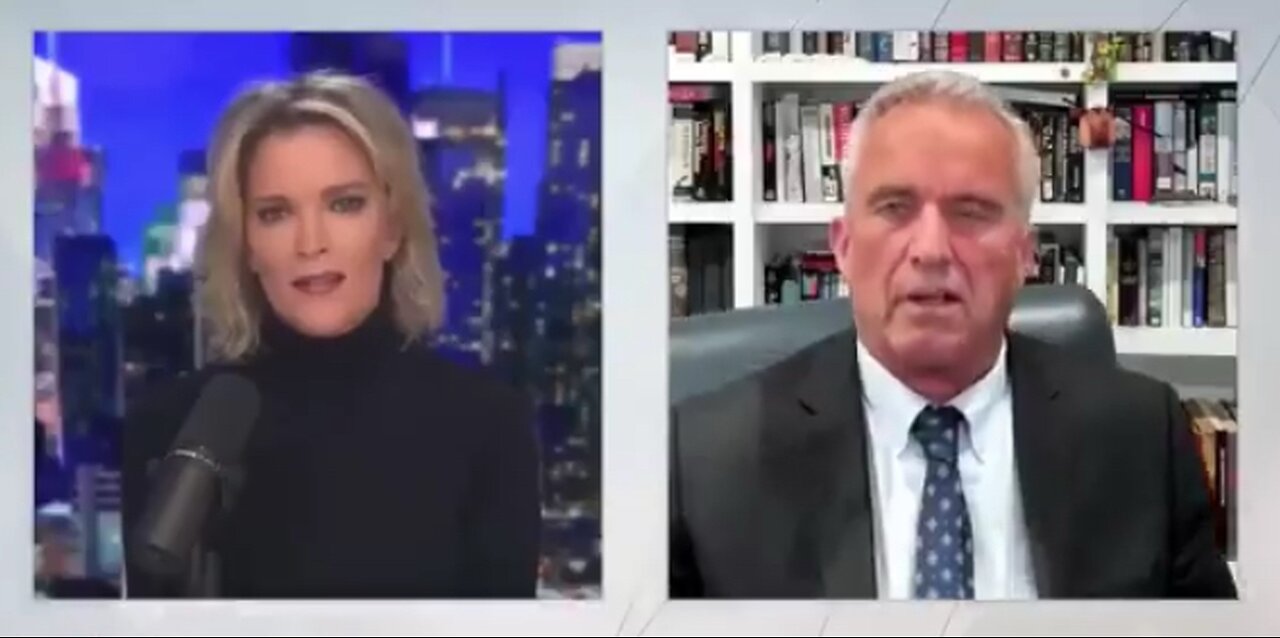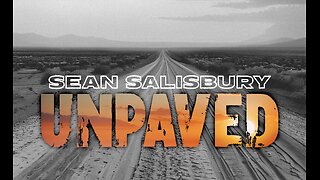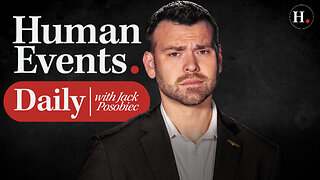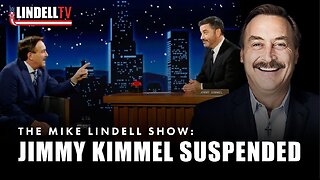Premium Only Content

RFK Jr Draws Parallels Between Fauci’s Handling of the AIDS CRisis and the COVID Pandemic
During an interview with Megyn Kelly, Robert F. Kennedy Jr. outlined a damning critique of Dr. Anthony Fauci's early career, drawing a direct parallel between his handling of the AIDS crisis and the COVID-19 pandemic. The central accusation? A pattern of aligning with a single, profitable pharmaceutical product while suppressing other potential treatments.
Kennedy detailed the story of the drug AZT. Originally developed as a chemotherapy drug by the National Cancer Institute, it was deemed so horrendously toxic that it was discarded and never even patented. When the AIDS epidemic emerged, the company Burroughs Wellcome (now GlaxoSmithKline) discovered it could kill the HIV virus in a petri dish.
This is where, according to Kennedy, Fauci’s pivotal role began. After successfully arguing that AIDS was an infectious disease under his agency's purview (NIAID) and not a cancer, Fauci—unexperienced in drug development—became dependent on the pharmaceutical industry. He allegedly stacked committees with company loyalists to rush AZT through, shutting out all competition.
The most shocking claim? That during clinical trials, AZT was killing so many patients that investigators began giving them life-saving blood transfusions to keep them alive long enough to complete the study. This artificial life-support, Kennedy asserts, masked the drug's extreme toxicity and was used to justify its approval.
The result, critics estimate, was 330,000 deaths over the following decade from a drug once deemed too toxic for short-term chemotherapy.
The parallel to COVID is clear: a narrative of fealty to a single, lucrative solution—first a toxic drug, then a vaccine—at the expense of broader, safer treatment options. The story of AZT, as presented by RFK Jr., isn't just history; it's a blueprint for understanding the present.
-
 LIVE
LIVE
Kimberly Guilfoyle
3 hours agoCharlie's Legacy and Our Mission
261 watching -
 1:07:55
1:07:55
vivafrei
2 hours agoJimmy Kimmel Out Indefinitely! Trump "Srubs" Study on Right Wing Violence? Clinton Tweet & MORE
153K37 -
 1:35:02
1:35:02
The Quartering
2 hours agoNuclear Fallout From Jimmy Kimmel Firing, New Head Of TP USA, Obama Whines
179K50 -
 23:35
23:35
Jasmin Laine
1 hour ago“We Were Betrayed”—Carney HUMILIATED As His Base REVOLTS Against Him
4.15K2 -
 LIVE
LIVE
The HotSeat
1 hour agoChapter 32 Begins: Honoring Charlie Kirk’s Legacy & Jimmy Kimmel Gets Canceled
783 watching -
![[Ep 751] Jimmy Kimmel – You’re Fired! | Freedom of Speech is Not Freedom From Consequence](https://1a-1791.com/video/fww1/bd/s8/1/e/-/h/j/e-hjz.0kob-small-Ep-751-Jimmy-Kimmel-Youre-F.jpg) LIVE
LIVE
The Nunn Report - w/ Dan Nunn
1 hour ago[Ep 751] Jimmy Kimmel – You’re Fired! | Freedom of Speech is Not Freedom From Consequence
305 watching -
 1:28:39
1:28:39
Sean Unpaved
4 hours agoBills-Dolphins TNF Battle, Steelers' D in Crisis, & Coaching Hot Seat Alert!
33.6K1 -
 59:58
59:58
Human Events Daily with Jack Posobiec
3 hours agoHUMAN EVENTS DAILY WITH JACK POSOBIEC
30.8K29 -
 1:12:48
1:12:48
LindellTV
2 hours agoTHE MIKE LINDELL SHOW: JIMMY KIMMEL SUSPENDED
24.8K5 -
 1:57:27
1:57:27
The Charlie Kirk Show
4 hours agoMegyn Kelly Remembers Charlie + Jimmy Kimmel Off the Air | 9.18.2025
307K98